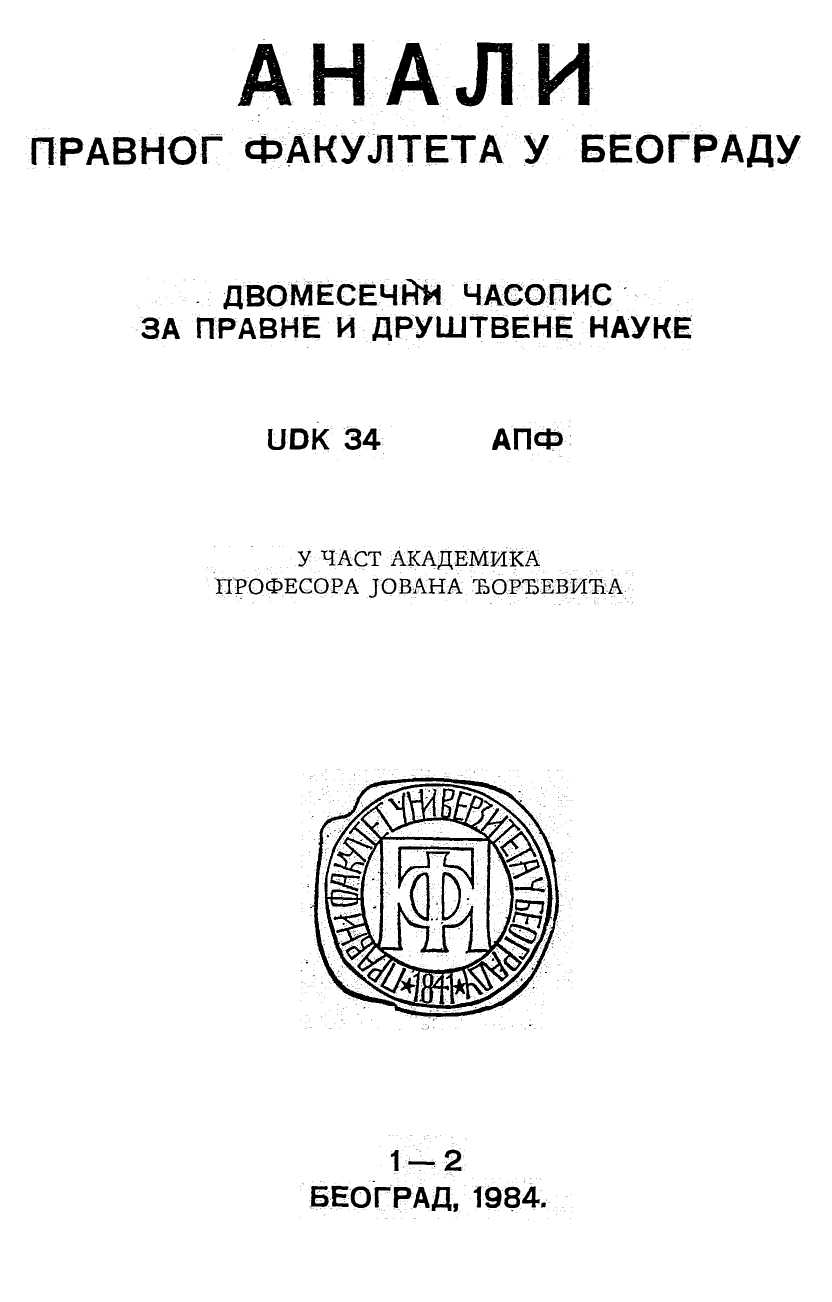AN AMERICAN VIEW OF U.S.—YUGOSLAV RELATIONS
AN AMERICAN VIEW OF U.S.—YUGOSLAV RELATIONS
Author(s): Fred Warner NealSubject(s): Politics / Political Sciences, Politics, International relations/trade
Published by: Правни факултет Универзитета у Београду
Summary/Abstract: The continued close and friendly relationship between Yugoslavia and the United States is, in a sense, one of the wonders of contemporary international politics. It has survived the „Trieste crisis,” Belgrade's 1955 rapprochment with Moscow, Washington’s worries about „neutralism” and non-alignment and the congenital American anti-Communism. Several factors explain this unusual development. Like all foreign policy matters, it basically reflects perceived national interests. This is all the more remarkable because in the early post-war period American relations with Yugoslavia were worse than with any other Eastern European country. What changed matters, of course, was the 1948 split between Belgrade and Moscow. For the United States, support for Yugoslavia was initially a ploy in the burgeoning cold war with the Soviet Union. For Yugoslavia, American assistance was important to bulwark its military security and overcome its economic difficulties. But the relationship was a reluctant one for both sides, entered into with hesitation, mutual doubts and suspicions. Many Americans felt the Soviet-Yugoslav split was a „Communist trick,” and even after they discovered otherwise worried about whether „Tito would go back to the Comin- form.” And many Yugoslavs feared that American military and economic aid, along with the new presence of a considerably increased number of official Americans in the'country, was aimed at” interfering in their internal affairs.
Journal: Анали Правног факултета у Београду
- Issue Year: 32/1984
- Issue No: 1-2
- Page Range: 164-169
- Page Count: 6
- Language: English

